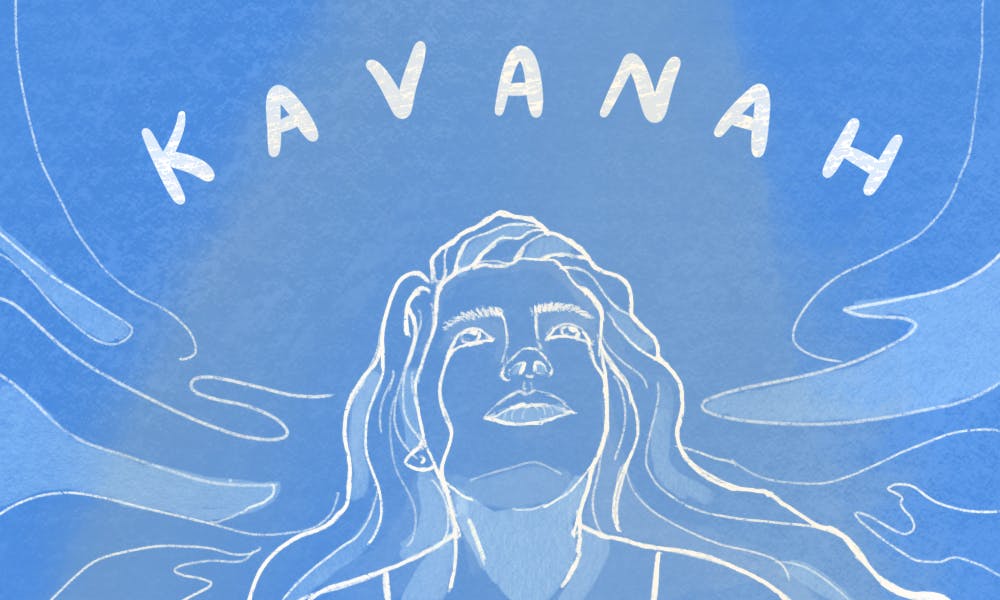I was around 12 years old when I was talking with my mother about what I had learned in Hebrew school that week. I was already on a path of total disillusionment with Judaism and religion as I knew it, as she repeatedly joked that the issue with religion is that every other faith tries to tell you all the answers, while the Jews are the only ones asking all the questions. She said it often leads to more confusion with Jewish identity than clarity.
Throughout my life, my questions stemmed from frustrations with defining my Jewish identity itself. I was conflicted because I hated services, was slowly losing my belief in the existence of God, and, eventually, was developing a complicated relationship with Israel as a liberal American Jew with Israeli family.
I used to describe my sect of Judaism (Reconstructionist Judaism) as a decentralized, anarchist religion: Judaism à la carte. You could pick what you wanted to do within it, and get rid of the rest. But even in its most casual form, I found my religion to be too ritualistic. All the things I loved about Judaism—the community, the questioning, the thoughtfulness—were overshadowed by a guilt over not totally subscribing to the whole faith. It was not as à la carte as I wanted it to be.
I lost my Jewish identity for most of high school, but upon coming to Penn, I was confronted with an active and, at times, domineering Jewish community. Being a pretty godless Jew at Shabbat dinner within my first weeks of school was a culture shock for me. Hillel did not feel like a community or place I belonged to. I didn’t know Hebrew or the prayers, nor did I know the customs or traditions I should observe. I thought I was “not Jewish enough” to navigate the community. Because of that, I rarely went to any Hillel events and didn’t associate much with the organization or even with being Jewish.
I still feel like that sometimes.
About halfway through my freshmen year, though, I was introduced to an organization called Jewish Life Liaisons that gave me the community I was looking for at Penn. This year, I became a fellow and actually found a community of Jews on campus like me. Our weekly meetings became a space where I could explore my own Jewish identity with all of the aspects of Judaism I loved. I feel comfortable being both goofy and vulnerable: admitting how I really feel about everything, especially my uncertainties. I was finally asking myself big questions again. We talked about topics of all kinds, such as whether we feel more like Jewish Americans or American Jews, and whether technology has displaced gratitude.
I told my mom over the phone about a lesson our rabbi taught us one week on the relationship between Keva and Kavanah. Keva is the Hebrew word for ritual. Kavanah is the true meaning behind a ritual and the beauty of spontaneity. He explained that sometimes religion focuses on Keva in ceremonious prayer or traditions, but this can detract from the beauty behind the rituals: the actual spiritual enlightenment that arises when you aren’t caught up in the monotony of customs.
Over time, I've discovered that my Judaism doesn't lie in services or Shabbat dinners, nor does it lie in dreaded Hebrew school. It runs far deeper within me in the way I think and the way I'm eager to question. It's expressed not in tradition but in spontaneous bursts of my own form of Jewishness. In short, my Judaism is in Kavanah.
My best example of Kavanah is a story I told my JLL group about a time when I was enjoying the outdoors. I was surrounded by trees early in the morning, watching the sun shine through and illuminate the leaves. For absolutely no reason, I started singing a blessing, Dodi Li, that I had learned years ago at camp. I don’t know what the Hebrew blessing means in English, but I loved the melody and wanted to commemorate the little moment I had.
The older I get, the more complicated my relationship with Judaism grows. However, I am comforted having found a space and community on campus through JLLs to explore it, define it, and endlessly question it. I have grown to understand my Jewish Kavanah—my Judaism à la carte—and feel so lucky to have found a place here to do so.

